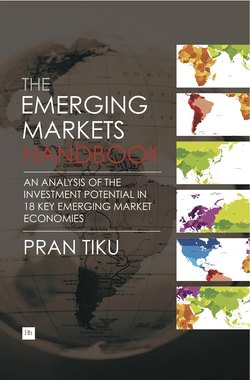Читать книгу The Emerging Markets Handbook - Pran Tiku - Страница 8
На сайте Литреса книга снята с продажи.
The great global recession – emerging markets suffer and recover
ОглавлениеThe global recession of late 2008 to early 2009 proved to be a turning point. As the United States, Europe and Japan suffered through a banking and debt crisis – to the point of near collapse – emerging markets suffered in tandem. This downturn occurred despite the fact that most emerging markets did not have banking or debt related problems – and as a matter of fact many emerging markets never went into recession. What happened was that investors (ready to avoid risk at all cost) implicated emerging markets by association, and exited any investments they considered risky. In the atmosphere of utter panic, people were in no mood to ask questions. Rather, they were interested in shooting down anything that did not meet their standard of absolute safety.
Yet it was in the aftermath of the recession that the economic strength of these regions was defined. While the US stock markets recovered some of the lost value in the subsequent year (2010), emerging markets came back even stronger. Such volatility based on sentiment and money flows is a part of the story of emerging market performance.
The credibility of emerging market nations – both in political and economic terms – was institutionalised when the G-7 expanded into the G-20 in 2009. The expanded Global Club of 20 nations now includes emerging market countries such as China, India, Brazil, South Africa, and many others, as a part of what was previously an exclusive club of mostly Western countries. Ironically, this club includes countries like Italy, which is a poster child of financial mismanagement and excess. Since 2009, institutions such as the IMF (International Monetary Fund), World Bank and the United Nations have rapidly begun to assimilate a number emerging market nations into their inner circles. The significance of these moves has not been lost on investors as money began flowing into these regions, both through direct investments and participation in joint projects.
Lately, however, the pendulum has swung back and investors have cooled off emerging markets once again. They are shifting their focus back to the United States, in particular, as its economy recovers. So it goes – the back and forth of investor sentiment as applied to emerging markets.
